How to Use Compost as Fertilizer
Updated Nov. 3 2020, 3:05 p.m. ET
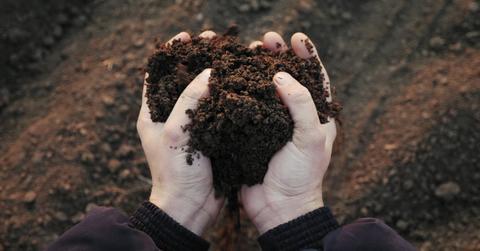
A well-made compost pile is a thing of beauty. Well, it’s a thing of putrefaction and decomposing organic matter filled with bacteria... but it’s beautiful nevertheless. This is because when it’s done, when all the water, eggshells, coffee grounds, grass clippings, and banana peels have finally been dissolved back into their basest elements, what you have left is fertilizer gold.
The process doesn’t happen overnight though. Turning a good compost pile into good fertilizer requires an equal amount of attentiveness and patience. You turn and tend it, wait for a season, and by the time it’s done, your fertilizer should be the perfect plant food for your newly-planted crops. But how exactly does one change random pot vegetable peelings into nutrient-rich soil, and how do you ensure that this soil has the best chance of growing even healthier crops?
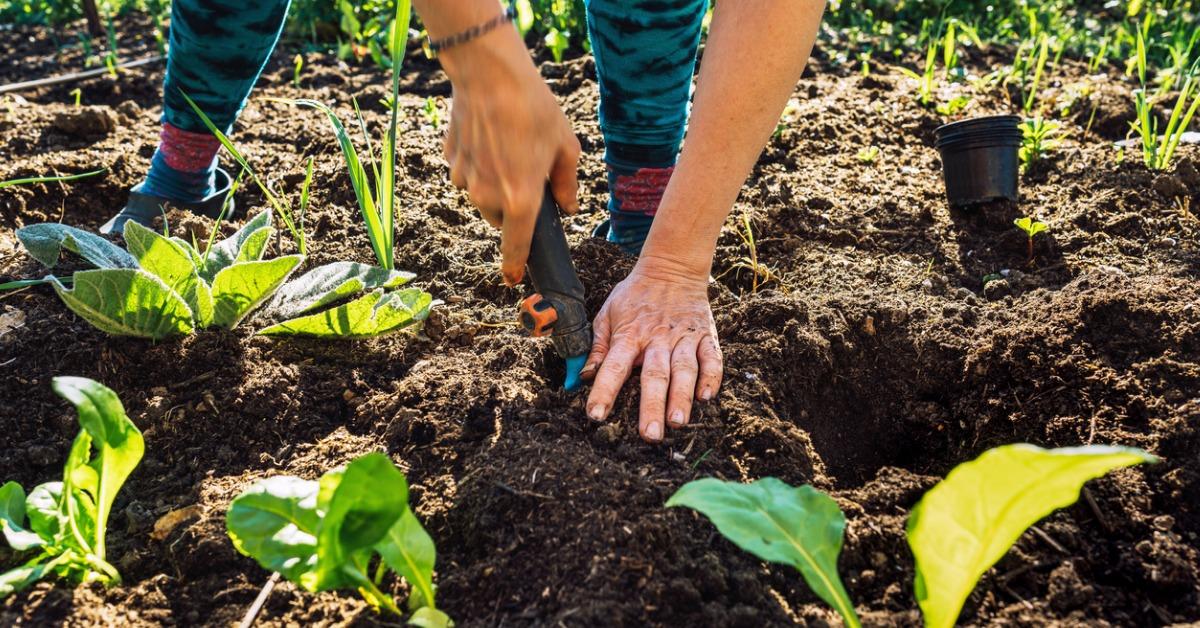
What does finished compost look like?
Making sure your compost is ready is the first step. An incomplete compost could lead to unwanted pests and a host of microorganisms that won’t help your garden, but sap nutrients from your seedlings. Finished compost can be determined by looking at the smell and the touch. Good compost should have an odor but not an offending smell. It should smell sweetly fragrant and loamy, like a forest on a wet day. If it smells like ammonia, it needs more time.
It will also feel crumbly and smooth, it might have some woody or fibrous pieces mixed in, but none of the components should be recognizable at this late stage. Corncobs and avocado seeds are an exception because they are notoriously hard to break down. It should be a rich, dark color and probably have been reduced to about a third of the original amount. If all these qualifications are met, it’s probably good to go.
What can compost be used for?
As unusual as it may sound to the uninitiated, good compost has a myriad amount of uses. Most of these uses are horticultural in nature, mind you, but that’s normally what you intended to use the compost for in the first place.
The only problem that arises from the creation of compost is that there is rarely enough to go around when all is said and done. Creating a good compost pile is key to getting the best yield, but you certainly don’t want to start producing more waste just to make more compost, as it sort of defeats the point.
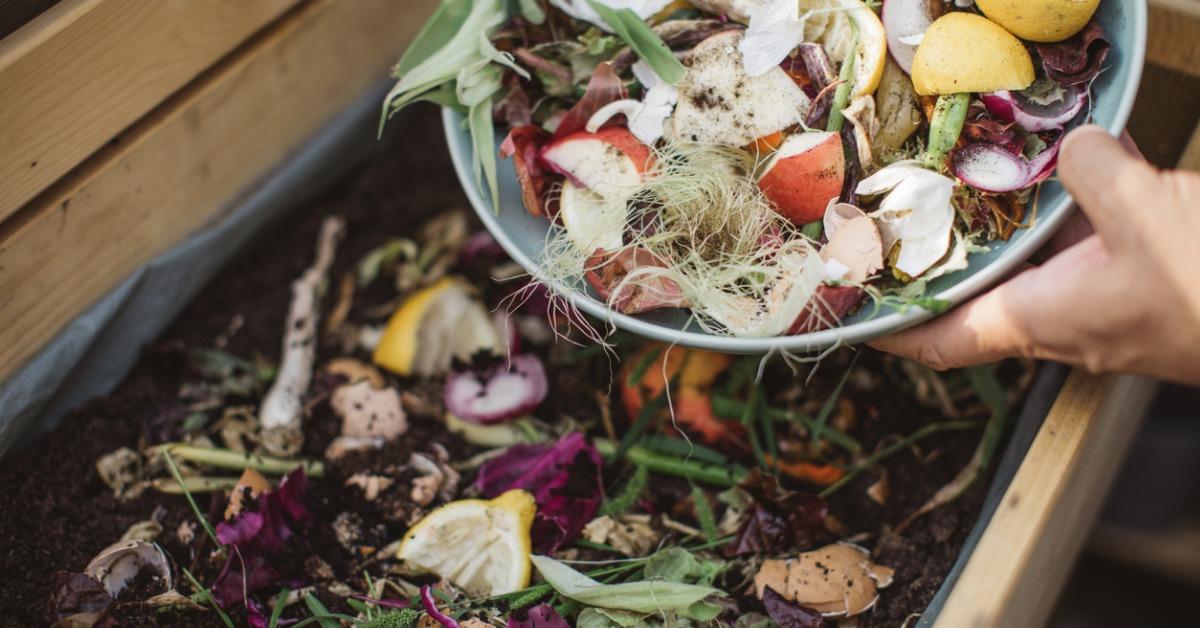
How to use compost as fertilizer?
You can use fully-matured compost as mulch for your flower beds or fertilized soil for your flower pots. Smaller, potted plants will benefit greatly from the dense mix of nutrients inside of well-made compost. If using it as mulch, make sure that you apply it in a 3 to 6-inch layer and then rake until it’s even all around. You can use it as plant food for spring and fall perennials, which will also benefit from its biogenic beneficence.
Another strange way to use compost is to brew something called “compost tea.” This involves steeping your compost in a liquid emulsion and pouring it directly on the plant’s roots, thereby concentrating the nutrients and making them easier to absorb. This type of fertilizer is best for heartier plants that can handle the heat.
Lastly, spread your compost on new or established lawns. You may need more than a little if your lawn happens to be huge, but doing this in the fall will make for a much healthier lawn come springtime. Simply add one or two inches of compost on the top of your lawn a week before planting seeds. Your wee seeds will thrive better throughout the winter and be strengthened when they emerge in spring.
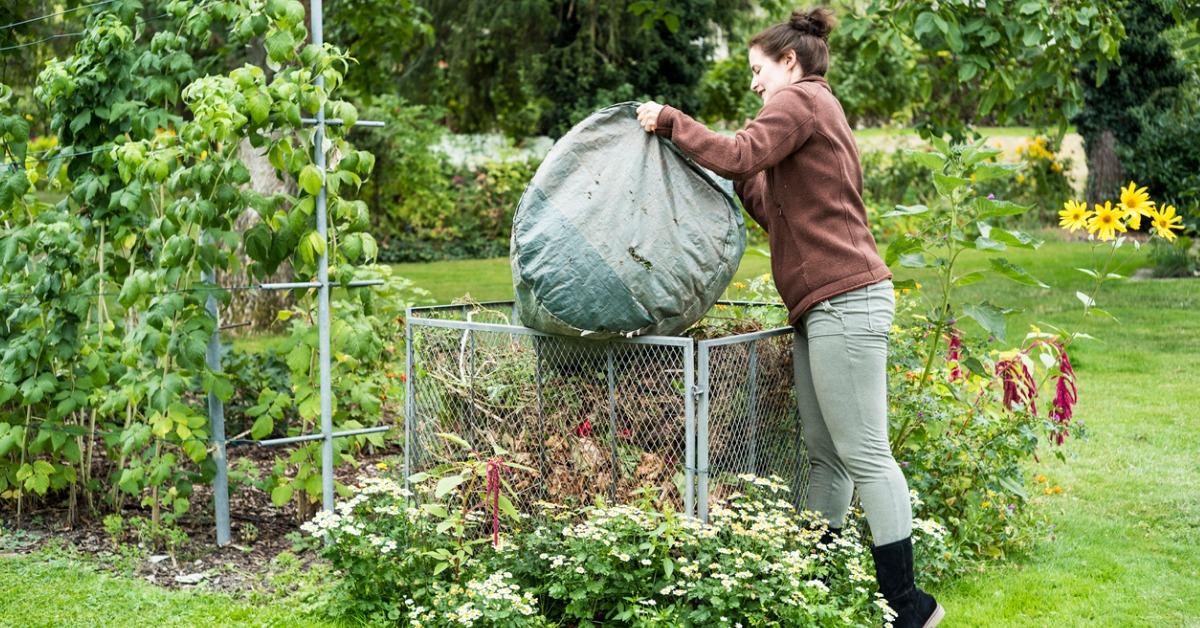
What ingredients should go in my compost bin?
Finding a balance of organic material in your compost bin is the key to getting the best results. A good compost bin needs five main components: greens, browns, water, air, and soil. The last three are pretty self-explanatory. Keep the pile damp but not overly moist, make sure you turn the pile every so often to activate the aerobic bacteria inside of it and throw in some good soil from the start. Make sure the soil is from outside, not bagged, as you want a good mix of microorganisms in there already.
The other two ingredients are less elementary. Green waste, that is to say, anything nitrogen-rich, includes things like apple cores, vegetable scraps, banana peels, eggshells, and old bread. Anything plant-based will do here. Browns, which are carbon-rich items, should include coffee grounds, tea leaves, dry grass, untreated paper-like coffee filters, and even a few fallen leaves.
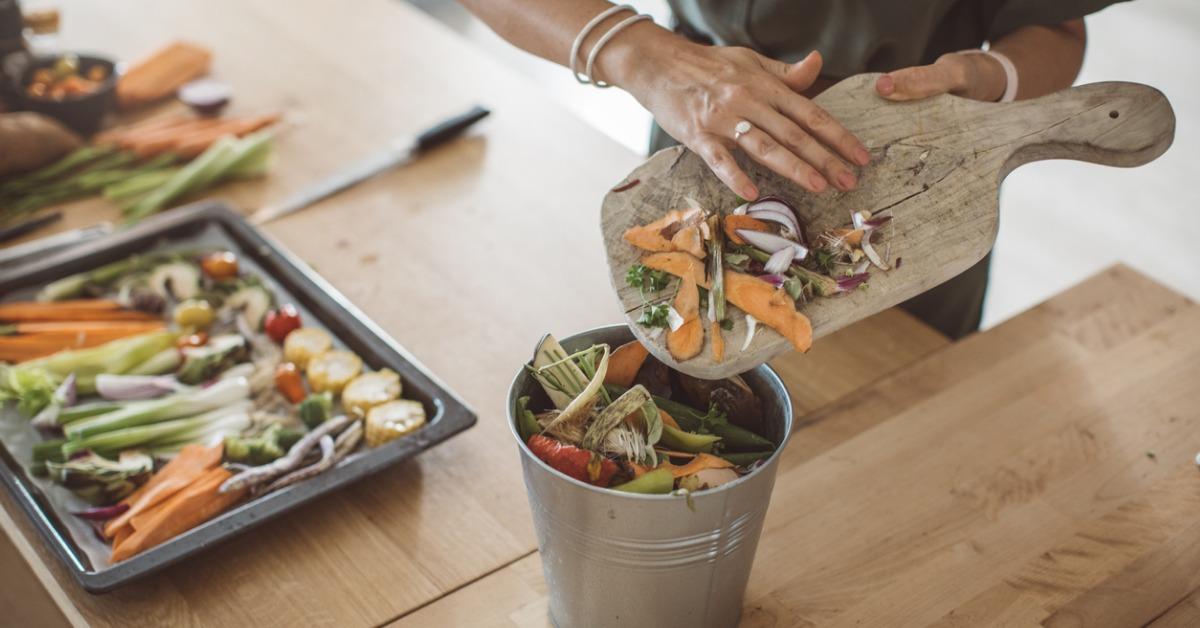
What are the benefits of using compost as fertilizer?
Compost can do many beneficial things if you use it for your garden. For example, it can improve moisture retention by fortifying the soil and allowing it to hold water for longer periods of time. This will help save money and water as well, because you’ll be watering your garden less overall. The improved soil structure of fertilized earth will also allow for more air pockets for water and nutrients to travel, unimpeded, to your roots.
At the same time, compost fertilizer will help balance the soil pH and prevent it from becoming too acidic or too alkaline. Obviously, compost contains a host of beneficial nutrients for your soil. Trace elements of things like calcium, magnesium, iron, and zinc will all help plants grow.
However, good compost is high in the “big three” nutrients as well. These three — nitrogen, phosphorous, and potassium — are needed for garden vegetables to thrive. Finally, good fertilizer will lead many beneficial bugs like earthworms to your garden. These critters will help make the soil even healthier, which will help all your plants grow better.